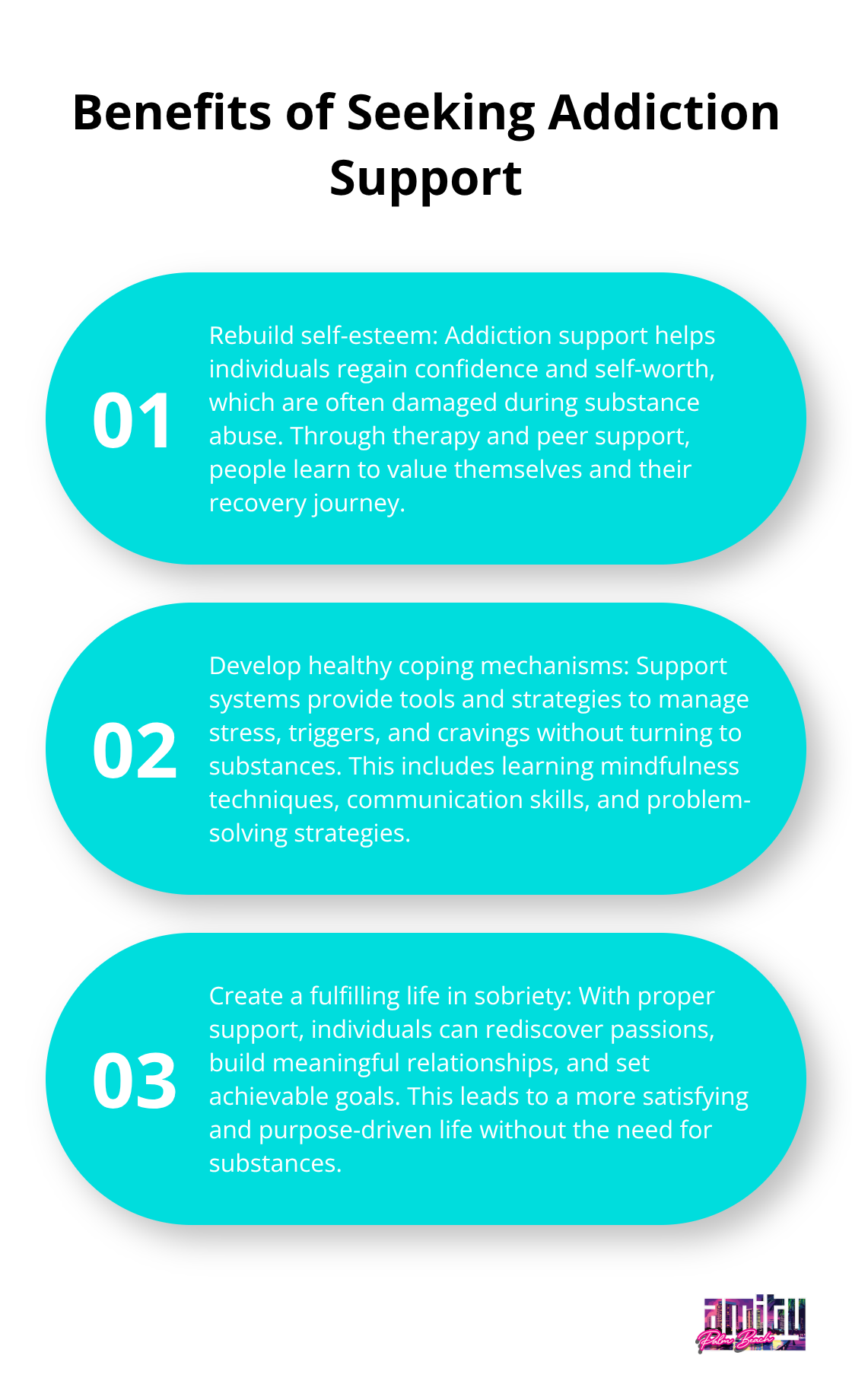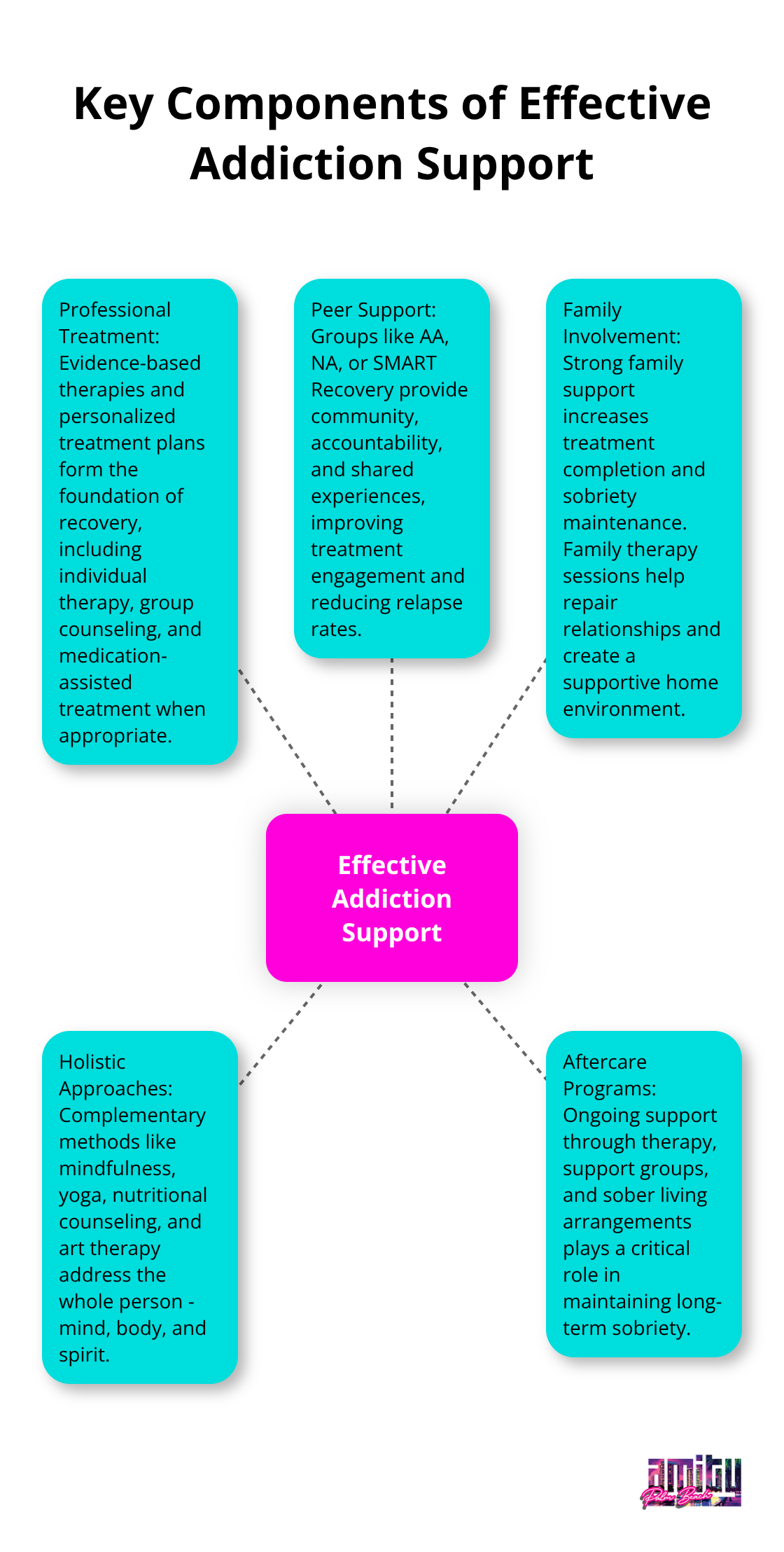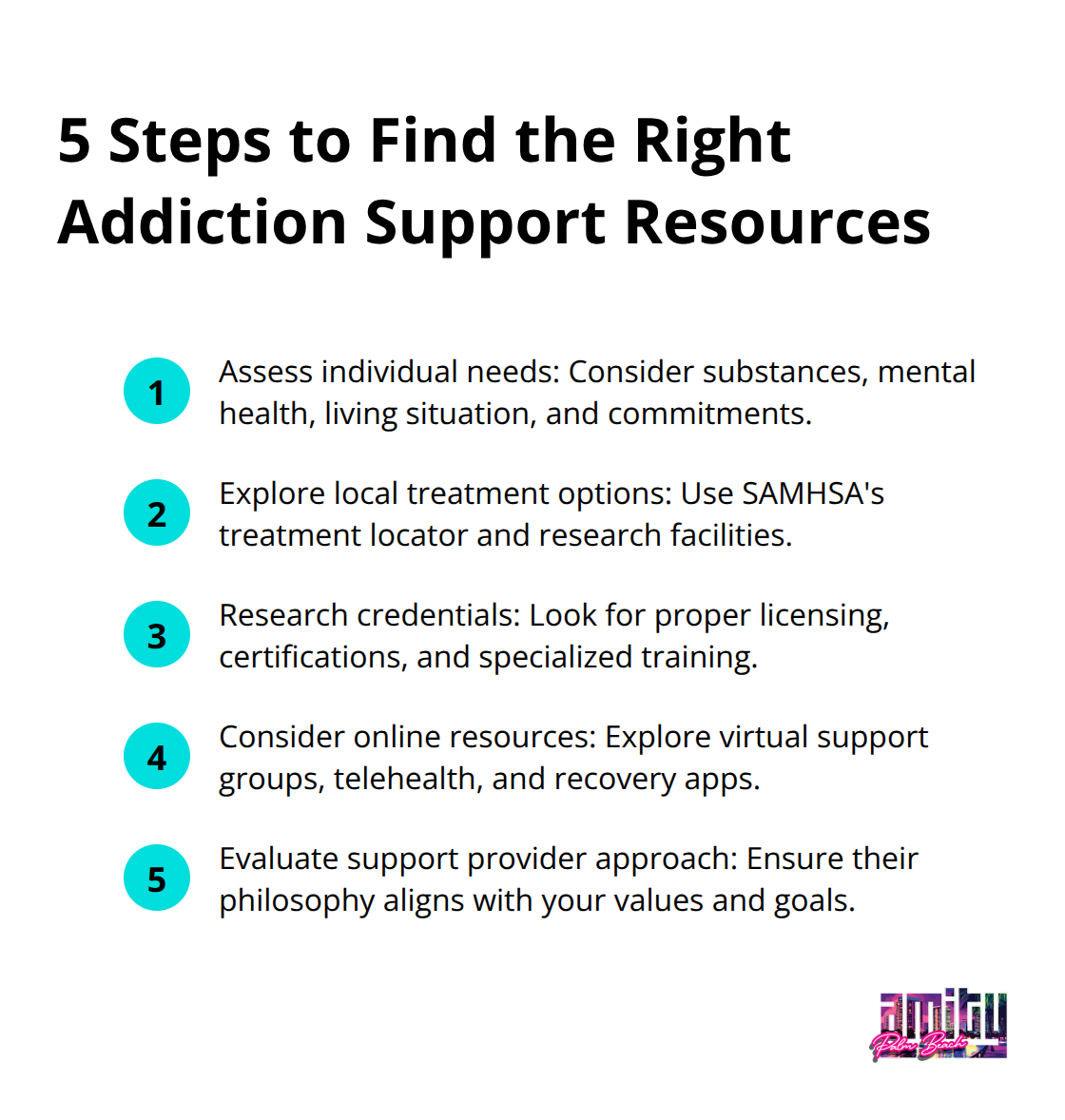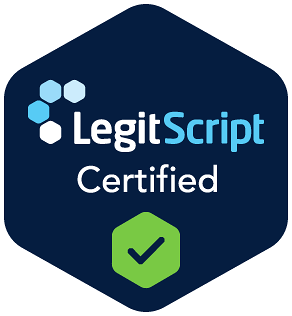At Amity Palm Beach, we understand the critical role of addiction support in the recovery journey.
Finding the right resources and connections can make all the difference in overcoming substance abuse challenges. This blog post will guide you through the essential components of effective <a href=”https://share.google/V3Fb6lqR1VEcZD9gZ”>addiction support</a> and help you locate the best options for your unique needs.
Let’s explore how to connect with care and build a strong support system for lasting recovery.
Why Addiction Support Matters
The Foundation of Recovery
Addiction support forms the bedrock of successful recovery. At Amity Palm Beach, we’ve witnessed how proper support can transform a person’s journey to sobriety. The National Institute on Drug Abuse supports scientific research on drug use and addiction, providing valuable insights into recovery processes.
The Power of Community
Community-based programs stand out as one of the most impactful forms of addiction support. These include:
- 12-step groups (Alcoholics Anonymous, Narcotics Anonymous)
- Alternatives like SMART Recovery
These groups offer a judgment-free zone where individuals share experiences, gain insights, and build a network of sober peers. Many of our clients at Amity Palm Beach find these groups invaluable for maintaining long-term sobriety.
Professional Support: The Cornerstone of Treatment
Professional addiction support encompasses a range of services, from one-on-one therapy to intensive outpatient programs. The Substance Abuse and Mental Health Services Administration recognizes the importance of peer support in recovery from substance use disorders. This underscores the importance of a comprehensive approach to addiction treatment.
Family and Friends: Unsung Heroes
The role of family and friends in addiction support cannot be overstated. At Amity Palm Beach, we recognize this crucial factor and offer family therapy sessions to help loved ones understand addiction and learn how to provide effective support.
The Benefits of Seeking Help
Reaching out for addiction support takes courage, but the benefits are immeasurable. Beyond increasing the chances of successful recovery, support systems help individuals:
- Rebuild self-esteem
- Develop healthy coping mechanisms
- Create a fulfilling life in sobriety

As we move forward, it’s essential to understand the key components that make addiction support truly effective. Let’s explore these elements in detail to help you build a robust support network for your recovery journey.
Key Components of Effective Addiction Support
Professional Treatment: The Foundation of Recovery
Professional treatment forms the bedrock of any successful recovery plan. This includes evidence-based therapies for drug use disorders, which have been examined in methodologically rigorous studies. The National Institute on Drug Abuse states that a combination of behavioral therapy and medication (when appropriate) offers the most effective approach for many individuals.
We at Amity Palm Beach provide a range of professional treatment options, including individual therapy, group counseling, and medication-assisted treatment (MAT). Our licensed therapists and medical professionals collaborate to create personalized treatment plans that address each client’s unique needs.
The Impact of Peer Support
Peer support groups play a vital role in long-term recovery. These groups provide a sense of community, accountability, and shared experience that can prove incredibly powerful. The Substance Abuse and Mental Health Services Administration (SAMHSA) reports that peer support services can improve treatment engagement and reduce relapse rates.
While 12-step programs like Alcoholics Anonymous (AA) and Narcotics Anonymous (NA) remain well-known options, alternatives exist. SMART Recovery, for example, offers a science-based approach to addiction support that some find more appealing. We encourage our clients to explore different options and find the peer support group that resonates with them.
Family and Friends: The Backbone of Recovery
The involvement of family and friends in the recovery process can significantly impact outcomes. A study published in the Journal of Substance Abuse Treatment found that individuals with strong family support were more likely to complete treatment and maintain sobriety.
Family therapy sessions and education programs (offered by many treatment centers) help loved ones understand addiction and learn how to provide effective support. These sessions can repair relationships damaged by addiction and create a more supportive home environment.
Holistic Approaches to Recovery
Holistic approaches complement traditional treatment methods by addressing the whole person-mind, body, and spirit. These may include:
- Mindfulness and meditation practices
- Yoga and physical exercise
- Nutritional counseling
- Art and music therapy
These holistic methods can help individuals develop healthy coping mechanisms, reduce stress, and improve overall well-being during recovery.

The Role of Aftercare in Long-Term Success
Aftercare programs (such as ongoing therapy, support groups, and sober living arrangements) play a critical role in maintaining long-term sobriety. These programs provide continued support and resources as individuals transition back to their daily lives.
Now that we’ve explored the key components of effective addiction support, let’s examine how to find the right resources and build a personalized support network for your recovery journey.
How to Find the Right Addiction Support Resources
Assess Your Individual Needs
Start with an honest inventory of your specific needs and preferences. Consider:
- The substance(s) you struggle with
- Any co-occurring mental health conditions
- Your living situation and family dynamics
- Work or school commitments
- Previous treatment experiences
This self-assessment will help you narrow down the types of support that will benefit you most. For example, if you deal with alcohol addiction and anxiety, look for programs that specialize in dual diagnosis treatment.
Explore Local Treatment Options
Research treatment centers and support groups in your area. The Substance Abuse and Mental Health Services Administration (SAMHSA) offers a treatment locator tool on their website. Look for facilities that offer evidence-based treatments and have experience with your specific addiction.
When you evaluate local options, consider:
- Accreditation and licensing
- Staff credentials and expertise
- Treatment approaches offered
- Success rates and testimonials
- Insurance acceptance and financial options
Don’t hesitate to contact treatment centers directly for more information. Many (including Amity Palm Beach) offer free assessments to help determine if their programs fit your needs.
Leverage Online Resources and Virtual Support
The digital age has made addiction support more accessible. Online resources and virtual support options can help if you live in a remote area or have scheduling constraints. Some valuable online resources include:
- Recovery forums and chat rooms
- Virtual support group meetings (e.g., online AA or SMART Recovery meetings)
- Telehealth therapy sessions
- Mobile apps for tracking sobriety and managing triggers
While online resources can help, you must verify the credibility of any digital platform you use. Look for resources backed by reputable organizations or healthcare providers.
Evaluate Support Provider Credentials
When you choose a support provider (whether it’s a treatment center, therapist, or support group facilitator), you must evaluate their credentials and approach. Look for:
- Proper licensing and certifications
- Specialized training in addiction treatment
- Experience with your specific type of addiction
- A treatment philosophy that aligns with your values and goals
Ask questions about a provider’s background and approach. A reputable provider will be transparent about their qualifications and methods.
Finding the right addiction support resources takes time and effort, but it’s a critical investment in your recovery. Thorough research of your options and choosing resources that align with your needs will set a strong foundation for long-term success in your recovery journey.

Final Thoughts
The right addiction support resources and connections can transform the recovery journey. Our team at Amity Palm Beach combines evidence-based treatments with a compassionate approach to address the complex nature of addiction. We offer a range of services, from medical detoxification to residential treatment and aftercare support.
Recovery is possible with the right support system in place. You can overcome the challenges of addiction and build a fulfilling life in sobriety. Your journey to recovery starts with a single action, and a world of support awaits you.
Take that first step towards reclaiming your life and building a healthier future. Don’t hesitate to reach out for addiction support today. Our team at Amity Palm Beach is ready to help you start your personalized recovery journey.




